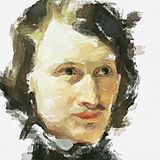Susan Cain's book on introversion gave me a such a witty and informative overview of the topic that I could wish for. I enjoyed in particular her treatment of the "myth of charismatic leadership" where she documents that leadership is too often confused with extrovert salesmanship, whereas many actual chief executives belong to the silent type. Herself a graduate of Harvard Law School, Cain's report on the more hilarious aspects of its companion Business School is particularly poignant. The less entertaining middle part of the book concerns the scientific evidence for the introvert/extrovert dichotomy, while the last third of the book concerns the challenges introverted people meet in the workplace, in relationships and in families with children. Here Cain makes good use of cases from her own practice and provides generous amounts of advice. My only serious objection is her failure to see that high levels of introversion among people might be connected to authoritarianism, while freedom of speech stimulates extroverted behavior. But all in all this is book on social psychology that is well worth reading.
Viser 2 svar.
Hvordan kobles introvert temperament til autoritære tilstander?
(at de autoritære griper sjansene og bygger seg troner mens vi bare
virker greie å ha med å gjøre? .. hvor ble det av 'filosof-kongene')
Emnet generelt fortjener plass i pensum, mangsnodig som det er..
Beklager seint svar. Min oppfatning er at et introvert temperament påvirkes sterkt av forhold i omgivelsene, med andre ord er at det ikke bare er biologisk betinget. Under autoritære, og spesielt totalitære, samfunnsforhold lærer folk å holde sine meninger og følelser for seg selv. I skjønnlitteraturen er dette godt behandlet blant annet av Sofi Oksanen i hennes bøker med handlingen lagt til Sovjet-Estland. På populære psykologiske tester som Myers-Briggs (som også Cain nevner) skårer øst-euopeere og kinesere langt høyere på introversjon enn f.eks. amerikanere og nordmenn.








































